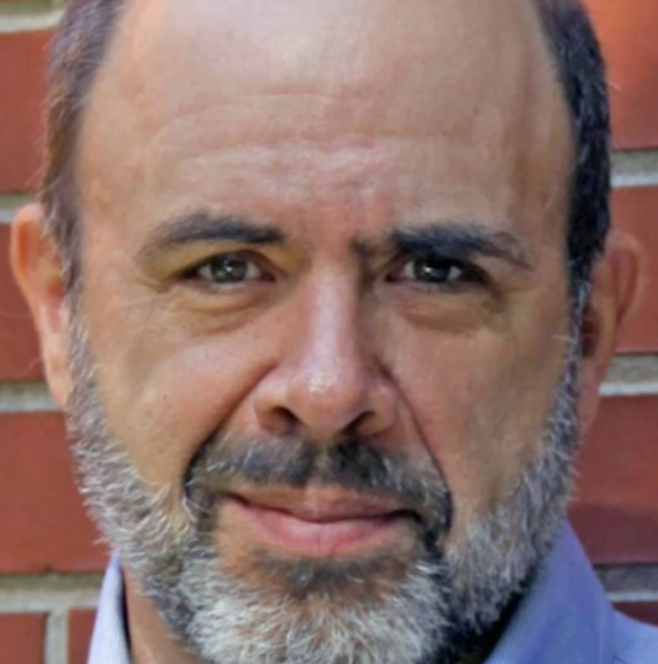In a last-minute bid to save Greenidge Generation’s Dresden power plant from a state order to shut down by Nov. 1, an Albany trade group argues that the facility is vital to the state electric grid.

Independent Power Producers of New York has asked a judge for permission to join Greenidge’s bid to win a temporary restraining order that blocks the closure.
The company is suing the state Department of Environmental Conservation over its refusal to renew the plant’s Title V air permit, which led to the shutdown order.
In a proposed amicus brief in that civil case, IPPNY argues that the DEC is “likely to deny” air permits for other fossil fuel generating plants, which would chill investments in the sector and threaten the reliability of the electric grid.
IPPNY asks the judge to vacate the agency’s denial of Greenidge’s air permit.
In 2023, plants powered by fossil fuels supplied 49 percent of the state’s energy, according to Gavin Donohue, president and CEO of IPPNY and an influential energy lobbyist.
“The grid needs generation that can turn on (and) ramp up to meet consumer demands regardless of the weather,” Donohue said in an affidavit supporting the proposed amicus filing. “Without these fossil units, the state would suffer significant blackouts.”
While the Dresden plant devotes most of the electricity it generates to powering a Bitcoin mining operation, it also sells power to the grid when pricing is favorable. At times, the company claims, the New York Independent System Operator (the grid) has asked the company to suspend Bitcoin operations and shift power to it.
But in its own recent filing in the lawsuit, DEC dismissed the company’s argument that shutting down the plant would compromise the grid. “(Greenidge) makes vague claims of grid reliability concerns if the facility operations are terminated, but offers no evidence to support them,” the agency said.
The DEC asserts that a preliminary injunction is an “extraordinary” remedy that depends on a “special showing” of three legal conditions the company cannot realistically meet.
“The equities favor the state due to the harms of climate change and Greenidge’s underlying violations of its permit and the (DEC’s) air regulations,” the agency’s Oct. 10 filing said.
The DEC noted that on July 8 it imposed a fine of $202,950 for Greenidge’s 11 permit and rule violations over several years. They included exceeding particulate matter emissions limits, failing annual stack tests, and failing to calculate emissions of several noxious gases.
However, if state Supreme Court Judge Vincent Dinolfo does decide to grant the requested injunction, the DEC requests a bond of $6.3 million to be surrendered if the order is later overturned. That figure is based on the agency’s estimate of the social cost of carbon from one month of the plant’s emissions.
The DEC asserts that its authority to deny Greenidge’s air permit renewal is based on the state’s 2019 climate law, the Climate Leadership and Community Protection Act (CLCPA). The law says the agency “shall consider whether (permitting) decisions are inconsistent with or will interfere with the attainment of (CLCPA’s statewide greenhouse gas) emissions limits.”
The law requires greenhouse gas emission reductions by 40 percent by 2030 and by 85 percent by 2050. The agency has produced a pair of policy statements, CP-49 and DAR-21, that interpret its CLCPA obligations.
In its lawsuit filed Aug. 15, Greenidge argued that DEC “weaponized” the CLCPA provision addressing the DEC’s duties involving air permits and that the agency lacks legal authority to deny its requested permit renewal based on it.
The company also claims the DEC has not followed NYISO’s federally approved process for deactivating existing generating facilities. That process allows NYISO time to assess whether a plant closure will harm grid reliability.
According to Greenidge, several times NYISO has ordered the plant to suspend its Bitcoin mining operations in order to shift electricity to the grid, including:
— In December 2022 during a winter storm the plant was called on to run at full capacity for the grid.
— In June 2023, NYISO denied the company’s bid for a two-week shutdown “due to low or no capacity margin.”
— On Feb. 3, 2024, the plant was called on to deliver a full load to the grid “again, for purpose of system reliability.”
— This past summer the plant curtailed power to the Bitcoin operation “upon direction of the NYISO” several times to help the grid meet summer load demand.
But the DEC said Greenidge did not take the steps necessary to obtain a NYISO order to keep the plant open.
The environmental groups Seneca Lake Guardian and Sierra Club made a similar argument in a brief they filed as intervenors in Greenidge’s suit against the DEC. “If NYISO determined that there is a reliability need that required the continued operation of a generator, NYISO would unilaterally take steps to ensure that need is met,” they argued.
Fossil Free Tompkins also filed an amicus brief in the case, and Colin Read, a former mayor of the City of Plattsburgh, has asked Judge Dinolfo to accept his proposed amicus brief.
Dinolfo has set an Oct. 24 deadline for Greenidge’s response to the DEC and the intervenors and Oct. 29 for a hearing in the Yates County Courthouse in Penn Yan.
IPPNY’s efforts to intervene in the case, which showed up in public filings Oct. 10, may help explain the 21 percent rise in Greenidge’s common stock since that day.


